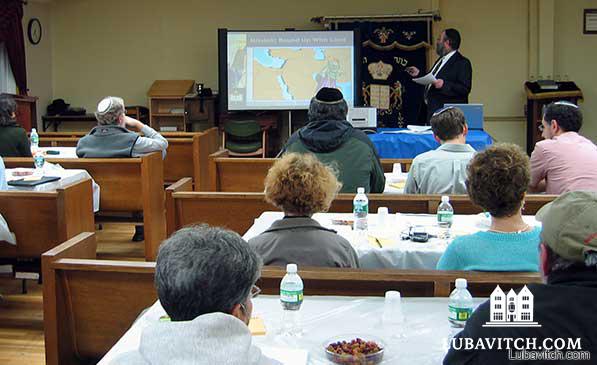“If we have a written law, why do we need tradition? And if we have a tradition, what’s the point of a written law?” This question is being posed in a course by the Rohr Jewish Learning Institute (JLI) Judaism Decoded: The Origins and Evolution of Jewish Tradition.
Set to begin in early May, the course promises to examine the differences between the Biblical writings and the Talmudic, Jewish law, and myriad of volumes of Jewish scholarship.
In six classes, conducted at 357 locations in 7 languages, will lay down the basics of Jewish scholarship. “We spend a lot of time building on how Jewish scholarship developed, the lessons in our daily life, but not so much on the foundation,” says Rabbi Mordechai Dinnerman, Director of Curriculum Development for JLI, the adult education arm of the Chabad-Lubavitch movement. This course, he explains, will challenge the basic premises of the teachings.
Authors of the course promise that participants will “Discover the sheer elegance of the ‘source code’ on which Torah law is built; enjoy the razor-sharp reasoning, intelligent debate, and compelling arguments of the Talmudic dialectic; and get a fascinating, behind-the-scenes glimpse of the most intellectually sophisticated religion in existence.”
The course was authored by Rabbi Berel Bell, a justice (Dayan) at the Rabbinical Court of Montreal, and a prominent authority on Jewish law, and the staff at JLI. It is based primarily on the teachings of Maimonides.
Dinnerman says that most surprising to the students may be the “significance of the human contribution that is required in Torah.” This, he says, is the greatest question many people have when approaching Jewish teachings. Thus the course promises to “explore the systematic formula through which Jewish law is applied to solve new, modern-day dilemmas.”
To join the course in your area, go to myjli.com.

Be the first to write a comment.